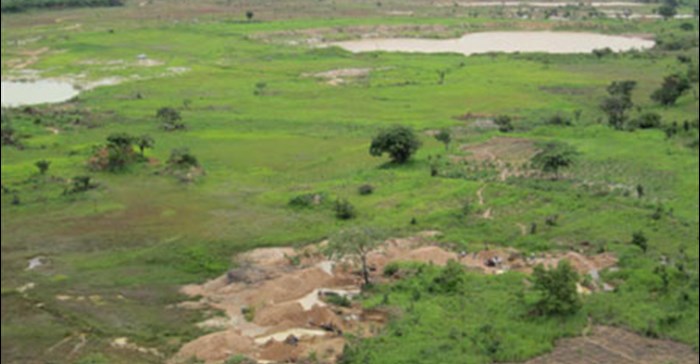In a modern-day version of claim jumping a Mauritius-registered private resources investment firm is seeking legal redress against an Australian-listed junior resources company over contested mining rights in the Democratic Republic of Congo (DRC).
The dispute
The applicant, MMCS Strategic 1, has filed a writ in the Supreme Court of Western Australia seeking a declaration regarding its legal ownership rights of the mining licence covering the Manono and Kitotolo lithium deposits in the African country.

Source: AVZ Minerals
It contests the claim by Australian-listed junior resources company AVZ Minerals that it has entered into a transaction to acquire a 60% interest in the Manono project area (release dated 2 February 2017), which effectively covers the licence area held by MMCS.
MMCS is a 68% direct shareholder in Manono Minerals SARL, a joint venture between it and the DRC government-owned Cominière SA, which holds mining permit PE 12202 covering the Manono and Kitotolo deposits in Katanga Province.
According to the claim, in 2016 the DRC ministry of mines unlawfully revoked the permit and issued a new one covering the same area to a separate joint venture led by AVZ and also involving Cominière SA.
MMCS acted promptly to appeal the unlawful revocation of its Manono licence and this remains subject to proceedings in the administrative section of the DRC Supreme Court of Justice. Under DRC law, when an appeal is brought over a revoked permit, the permit is deemed to remain valid until the appeal proceedings are concluded.
New claimant forges ahead
Nevertheless, AVZ has proceeded to publicly inform shareholders of its acquisition of this licence, which is being challenged by MMCS.
MMCS notified AVZ on Friday, 10 February 2017 that there are pre-existing claims over the Manono and Kitotolo lithium deposits.
Subsequent to that notification, AVZ released a notice of shareholder meeting and Manono due diligence update (released dated 2 March 2017), which stated “the company has established a presence on site at Manono with a group of technical and support contractors” in preparation for planned drilling and sampling activity that had been previously delayed due to ground conditions.
AVZ also told the market it “is negotiating an extension to the previously agreed 60-day due diligence period with its joint venture partners” in regard to its acquisition terms and that “the company’s DRC legal adviser has commenced a review of legal matters including the validity of title in relation to the Manono project”, but the company’s joint venture partner (Cominière) had made standard representations and warranties with respect to the validity of title.
The shareholder meeting called by AVZ for Thursday, 6 April 2017 will seek approval of several resolutions including the terms of the proposed acquisition of the Manono project, the details of the up to $5m in capital the company is seeking to raise for the acquisition and development of the Manono project, and the issue of facilitation shares to recently appointed executive chairman Klaus Eckhof. Parties to the proposed acquisition are AVZ (60%), Cominière (30%) and Dathomir Mining Resources SARL (10%).
MMCS will seek confirmation from the Supreme Court of Western Australia as to the ongoing validity of its existing licence. MMCS and its legal counsel consider the circumstances and events that led to the purported revocation of mining permit PE 12202 as highly unusual and exacerbated by the subsequent grant of rights over the same area to a new joint venture involving common parties. The WA Supreme Court is deemed to have jurisdiction given the fact AVZ is domiciled in the state.
Pursuing different avenues
MMCS may pursue a number of avenues to explore legal remedies within local and international courts to enforce its existing rights over mining permit PE 12202 and to protect its intellectual property rights in regard to the Manono project, which is a high priority given the announcement that AVZ has commenced activities on the ground in the DRC.
Since the joint venture between MMCS and Cominière SA commenced in September 2013, MMCS has spent a total of $9m on advancing the Manono project, including pre-feasibility study analysis and development of a local corporate social responsibility (CSR) initiative in line with best international practices.




































